- Home
- Roger Taylor
Farnor Page 10
Farnor Read online
Page 10
Jeorg curled his lip derisively, but Gryss's last point was a sound one. The elder turned to Farnor. ‘You and the others get back to the hillock and act as look-out for us. We'll come down to the end of the village to meet them when they're a bit nearer.'
Farnor and his friends needed no urging; the arrival of the elders allowing them to let excitement begin to dominate their initial alarm.
Gryss watched them striding down the hill talking noisily to one another. Some of the younger ones were running ahead to see who could be first to reach the top of the hillock. He found himself re-organizing the future Dalmastide activities. A sunset watch like it was once, supposedly? With a prize for the first sighting of the gatherers? Or a race to the hillock for the young ones? A feast to greet the gatherers? He dismissed that one immediately. It was important to make their visit routine and unmemorable.
But truly he felt empty. Shock and grief, he diagnosed, at this unexpected loss.
The thought, please don't let it be war, surfaced again in his inner silence, and he realized it had been repeating itself over and over, underlying all his other thoughts since he had arrived like the drone on a sinister bagpipe colouring the lightness of the dance with its ominous monotony.
For something momentous must have happened if the King suddenly needed his tithe from this small and distant valley, and had sent so many gatherers to collect it. Nearly a hundred, did Farnor say? And he could think of nothing other than war. Surely the celebration of a royal wedding or birth, or the mourning of a royal death would not warrant such an action? For a moment it occurred to him to send after the young folk, to call them back and tell them to hide lest the gatherers brought with them such dark news and its inevitable consequence: a calling of the young men of the land to arms.
Memories that he had long buried emerged to heighten his anxiety. Memories of beggars wandering the streets of a town near the capital city of the land. Beggars with limbs missing and faces scarred by long-healed but dreadful wounds. Old soldiers, he had been told. Ignore them.
He felt shame still that he had heeded this advice.
Grimly he crushed the memory and sought to follow his own advice: one thing at a time. Whatever nightmares he might choose to torment himself with here, the reality would be on them soon enough.
The crowd had fallen silent, as if the young people had taken all the noise and energy with them. Gryss was once again the focus of attention. ‘We might as well follow them,’ he said, turning away and setting off slowly down the hill. The group drifted after him, like an uncertain funeral procession.
The general mood was little changed when they reached the end of the village and began to spread out into a well-worn patch of land much used by the children.
A variety of indignant and defiant noises had reached Gryss's ears from the menfolk as they came to terms with the prospect of losing Dalmas bargains, but he let them pass without comment. Better spat out now and into the ears of friends than when the gatherers were here.
Jeorg was the last defender of this position. Scowling, he planted himself firmly in front of Gryss. ‘They'd better be here by sunset,’ he said. ‘Or the tithe's ours.'
Gryss stared at him. ‘You'll be telling them then, will you?’ he said. ‘All one hundred of them? All one hundred soldiers and officials?'
The women were quieter, infected, Gryss suspected, by the same concerns as himself. It was ironic, he had mused more than once in the past, that of the two sexes the one best suited to cope with change and upheaval was the one that valued security the most. They would be watching, thinking, learning, even if they were not aware that they were doing it. And their very presence would be quietly curbing the more foolish excesses of the menfolk.
When Farnor and the others came back, the crowd spread out on both sides of the road to hear their news.
'They're a funny looking lot,’ Farnor said, self-consciously. ‘Not like I imagined soldiers to be at all.'
Gryss laid a hand on his arm which he hoped felt reassuring.
Then the first riders appeared around a bend in the road some distance away and Gryss stepped to the front of the crowd. He had no idea what formalities, if any, had to be observed when greeting the King's tithe gatherers, so he decided that simple courtesy would be his best approach when first contact was made. That, and a willingness to apologize and explain any shortcomings in the welcome that was being offered.
He began forcing his mouth into a smile.
Slowly the riders approached, swaying shadows against the darkening landscape. Gryss squinted, trying to bring them more clearly into view, but it was not until they were almost upon him that he began to understand Farnor's comment.
Apart from the beggars, the only soldiers he had ever seen were those performing formal duties, guarding public buildings or marching in ceremonial parades. Those had been dressed in colourful, braided liveries and armed with polished swords and pikes with finely etched blades and intricately carved handles and grips.
The new arrivals, however, were dressed in all manner of attire, and carried about them all manner of arms: swords, maces, axes, bows, spears, pikes, and no two of them alike. Indeed, more than a few carried weapons which had obviously been farm implements at one stage. Further, Gryss noted, they were, to a man, scruffy and unkempt. Some were bandaged and others, his healer's eye noted, looked far from well. There was a wildness about them that somehow he had not expected.
And their horses were no better, he noted in passing: ill-groomed and lifeless.
He set aside the questions that their appearance raised. They were after all on active service, as it were, and far from the capital and their homes. And, for all he knew, perhaps some communities had chosen to argue about the need to pay the tithe. It would be foolish indeed to imagine that this valley was the only one that had been remembered after such a long time.
It was not a happy thought. Such occurrences could bode ill in any negotiations that might ensue even though the gatherers could soon be assured that they would find neither ill-will nor resistance here.
Gryss passed a hand through his hair in an apparent and highly uncharacteristic attempt to smooth it down. It returned to its normal condition as he stepped forward to greet the lead rider.
The man, however, gave no sign of even having seen him, and his horse continued walking steadily forward. Gryss stepped aside when he saw that the horse was not going to stop, then took a pace back. The rest of the villagers did the same.
Slowly the line of riders walked past. Gryss kept his face locked into a welcoming smile, but it was not easy. The soldiers were not merely an unprepossessing sight; they had a hard, even brutal quality about them that was almost palpable. And it was difficult to say which was the more chilling: the stony indifference to the watching crowd that most of them exhibited, or the cold-eyed curiosity of the remaining few.
The villagers watched this parade with a bewilderment that gradually turned into a foot-shuffling unease, and there was silence for some time after the last rider had passed by.
It was Jeorg who broke it. ‘They treated us like so much cowshit!’ he declaimed angrily, but his voice faded as Gryss raised a hand for silence. He was at a loss. Of the many things he had envisaged happening since Farnor had told him of the approaching riders, being ignored was not among them. Surely if there was some special greeting ceremony for the gatherers they would have at least stopped and waited for it?
'I don't understand,’ he admitted. ‘I think we'd probably all better ...’ He hesitated and shrugged, ‘... go back to our normal business and ... await events.'
The silence of the passing troop seemed to have infected the watchers, and such conversations as were struck up were held almost in whispers as the villagers took Gryss's advice and gradually dispersed. At Gryss's signal, Farnor and a few others remained.
'Not much heart for finishing the sunset watch, Farnor?’ Gryss asked, largely for want of something to say.
Farnor shook his he
ad. ‘Not much need now, is there?’ he said, attempting to smile. But he could not keep his true feelings hidden. ‘I don't know why I feel so upset ...’ He paused, and Gryss saw his mood suddenly change. ‘No, not upset,’ he decided. ‘Angry. Ignoring us like that. They treated us as if we were less than cowshit. At least there's a use for that. We were like ... nothing ... smoke in the wind ... bubbles in a stream.'
'Would you rather they'd rode in at the charge, sabres drawn?’ Gryss asked, with gentle mockery, glad to find himself recovering from the stultifying effect of the riders’ silent passage.
'No, of course not,’ Farnor replied needlessly, though with some heat. ‘But they could have ... stopped, or something. Acknowledged us in some way. Told us what they wanted, what we were supposed to do.'
'I'll confess it wasn't what I expected, to be sure,’ Gryss said. ‘But in my experience being ignored by strangers, especially strangers who look like they did, is probably better than being noticed.'
Farnor pulled an unhappy face. ‘Yes,’ he agreed. ‘They were ...’ He hesitated, loath to form the words he was thinking for fear of scorn from the others. ‘Frightening,’ he conceded eventually. He wrapped his arms about himself and hunched his shoulders as if he were suddenly cold.
No scorn greeted the remark, however, for it chimed with the unspoken thoughts of too many of the others. ‘They're only men,’ Gryss said flatly, after a long pause.
He turned to the others. ‘Still, we can't leave it like this,’ he went on in a tone that implied he would very much prefer to. ‘We'll have to find out what's happening.’ An idea came to him. ‘Perhaps they've gone straight to the tithe barn,’ he said, snapping his fingers. ‘Come on.'
It took the group only a short time to reach the foot of the slope that led to the barn. The sunstone was shining like a guiding star, but even without its light they could see that no riders were waiting for them outside the sealed doors.
Gryss scratched his head violently with both hands, making his grey thatch even more disorderly than normal. ‘We'd better go after them,’ he said in exasperation. ‘They're outsiders, after all. It could be they don't even know where they are. They might think there's another village further up the valley.'
'Let's wait for them to come back, then. It'll be easier on our legs,’ Jeorg said.
Gryss seemed half inclined to agree but he shook his head. ‘No,’ he said. ‘That lot were hardly in the sweetest of moods, for whatever reason. They'll be even sourer if they trail up to the castle and find they have to turn back. Besides, we shouldn't respond to their bad manners with bad manners of our own.'
Progress through the village was slowed by large numbers of people coming the other way, people who had not been disturbed by the initial alarm but who had peered out of their windows simply to see, ‘Who that could be, riding at this time of the evening?'
By the time he had explained the tale some four times to different inquirers, Gryss's temper was beginning to fray, and he delegated the task to Yakob, one of the other village elders.
It soon became apparent, however, that though the riders might have only been walking their horses, they were already beyond catching.
'Well, I'm damned if I'm riding after them,’ Gryss said, stopping abruptly in the middle of the street and wiping his shining forehead. ‘They can go all the way to the Great Forest for all I care. We'll take your advice and wait for them to come back, Jeorg.'
'In the inn?’ Jeorg inquired, inclining his round head significantly towards the nearby establishment.
Gryss nodded solemnly, as one about to prescribe a special medicine. ‘Indeed,’ he said, lifting the morale of the crowd with a single word as befitted a leader.
Farnor took his arm as he began to lead the assault on the inn. ‘I think I'll go home,’ he said. He was worried about that line of ill-favoured horsemen going past the farm with his father and mother alone there and unaware.
Gryss caught the uncertainty in his voice. ‘Probably the best thing,’ he said. ‘Tell your father what's happened. I'll borrow a horse from the inn and come along myself later.'
Unhindered by the others, Farnor let his feet take up the pace of his concerns and as he reached the outskirts of the village he broke into a leisurely, long legged trot that he knew he could maintain for mile after mile.
Stars were beginning to appear in the darkening sky, though a moon was rising that would soon wash many of them aside.
Farnor had no eyes for the heavens, though. Away from the apparent security of the village his mind began to wander unrestrained through many dark avenues, fed by his vivid imagination and remnants of tales he had heard from Yonas.
All that was truly clear to him was the increasing certainty that, whatever the gatherers were doing, they boded no good and the sooner they were gone the better. He echoed Gryss's relieved proclamation that he was glad the village had always collected the tithe. The prospect of greeting King's men of such an ilk having failed to do so verged on the terrifying.
'They're only men,’ Gryss had said. The rational view, stated to dispel the primitive and ancient fear of strangers that is in all people.
But reason is the newcomer and less rooted in its ways, and the juxtaposition in his mind of the grim outsiders and the warm security of his home and parents made Farnor grimace despite himself.
He wanted to be home desperately, both for shelter and support.
Then for a while his thoughts ceased and he simply ran; on and on, relaxed and easy, despite his concerns, until at last he came to the gate that led to his home. It was too dark now for him to see any signs of where the riders had gone and his anxiety began to return as he ran up the pathway towards the farm.
Rounding the final corner, he saw the house. A sunstone lantern hung by the door, illuminating the yard. The empty yard.
Farnor wanted to shout with relief as half-formed images of the place filled with milling horsemen emerged from the recesses of his mind and vanished.
'You look puffed,’ Garren said, as his son banged into the house. ‘Some irate father been chasing you from sunset watch for dallying with his daughter?'
He chuckled, until his wife shot him a menacing glance over the top of the book she was reading.
Before either could speak, however, Farnor had launched into his tale. As it unfolded, his mother laid down her book and joined her husband in staring at their son spellbound.
'Riding up the valley, you say?’ was all that Garren could say as Farnor finished his telling.
Farnor nodded. ‘I didn't catch them,’ he said. ‘I suppose they've gone on up towards the castle.'
Katrin looked nervous and Garren puffed out his cheeks and blew a long breath as he struggled to assimilate all that he had just been told.
'Gatherers!’ he said eventually. ‘After all these years! That's not going to go down well.’ Then the questions began to pour out. ‘How many were there? What did they look like? Why didn't they go to the tithe barn? Why didn't Gryss speak to them?’ And in increasing bewilderment. ‘And what in the world are they doing trailing all the way out here?'
In the small spaces between these and other questions, Farnor shook his head, shrugged and managed the occasional ‘I don't know', until inspiration prompted him to say, ‘Gryss said he'd come along later.'
It stemmed the flow of questions, but not his father's agitation. Garren got up and walked out of the house and across the yard. Farnor followed him, leaving his mother silhouetted in the open doorway. The farm's two dogs emerged from their kennels and loped after them.
At the gate Garren stopped and, placing his hands around his eyes to shield them from the light of the sunstone lantern, he peered intently towards the castle. Farnor did the same but, despite the moonlight, it was too dark for anything to be seen other than the sombre shapes of the mountains themselves.
'Do you think we should go and look for them?’ Garren said. ‘See if they need any help ... food ... water? If they're as weary as you see
m to think they are, they could get lost up there.'
'They had pack horses with them,’ Farnor said. ‘They must be used to travelling through strange countryside by now if they've come all the way from the capital.'
'You're right,’ Garren said, turning back towards the farmhouse. ‘And I doubt they'd take too kindly to a stranger barging in on their camp.'
As they were crossing the yard one of the dogs growled and edged towards the gate. The whinny of a horse floated out of the darkness and slowly a tall shape emerged into the outer fringes of the sunstone lantern's light. It was a rider.
'Sorry if I startled you,’ came Gryss's voice as he dismounted to open the gate. His tone was matter-of-fact. ‘Did you see any sign of the gatherers on your way back, Farnor?’ he asked.
Farnor shook his head.
Gryss reached down to stroke the two dogs, then he looked northwards. ‘I imagine they've gone wandering off up there, then,’ he said, turning to Garren. ‘Farnor's told you everything, I presume?'
'Yes, but I'm none the wiser.'
'Nor I,’ Gryss said. ‘But I've had a quick word with most of the Council at the inn, and I thought I'd have one with you too before we have a formal meeting tomorrow.'
Garren smiled. It was Gryss's normal way of dealing with such rare matters as had to be dealt with through the village's Council. After making up his own mind, he would then persuade the elders and Council members to his way before the meeting, ‘to save time'. Sometimes it worked. Sometimes, spectacularly, it did not.
At the word ‘Council’ Farnor's interest in the proceedings evaporated. The excitement and the alarm of the arrival of the gatherers could not survive the dead hand of any Council deliberation. As the two men disappeared into the house, Farnor clicked his tongue at the dogs and clambered over the gate. After his dash from the village and his father's interrogation, a quiet moonlight walk would help him clear his thoughts.

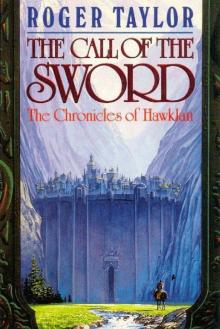 The call of the sword tcoh-1
The call of the sword tcoh-1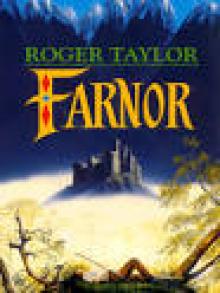 Farnor
Farnor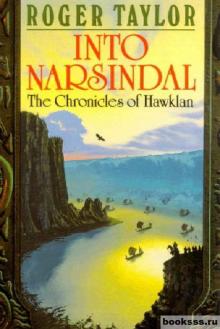 Into Narsindal
Into Narsindal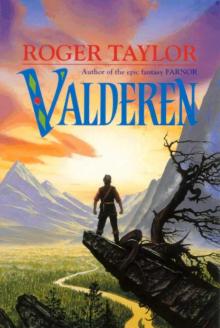 Valderen ft-2
Valderen ft-2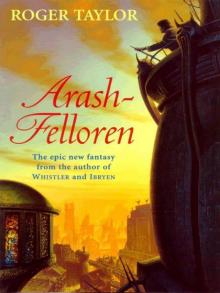 Arash-Felloren
Arash-Felloren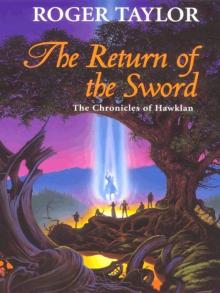 The Return of the Sword tcoh-5
The Return of the Sword tcoh-5![Ibryen [A sequel to the Chronicles of Hawklan] Read online](http://i1.bookreadfree.com/i1/03/26/ibryen_a_sequel_to_the_chronicles_of_hawklan_preview.jpg) Ibryen [A sequel to the Chronicles of Hawklan]
Ibryen [A sequel to the Chronicles of Hawklan]![The Call of the Sword [Book One of The Chronicles of Hawklan] Read online](http://i1.bookreadfree.com/i/03/24/the_call_of_the_sword_book_one_of_the_chronicles_of_hawklan_preview.jpg) The Call of the Sword [Book One of The Chronicles of Hawklan]
The Call of the Sword [Book One of The Chronicles of Hawklan]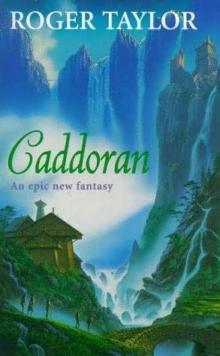 Caddoran
Caddoran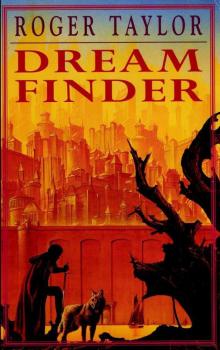 Dream Finder
Dream Finder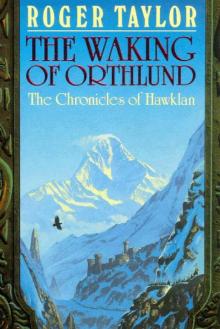 The Waking of Orthlund
The Waking of Orthlund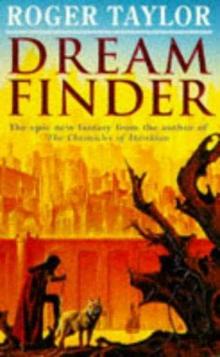 Dream Finder cohs-1
Dream Finder cohs-1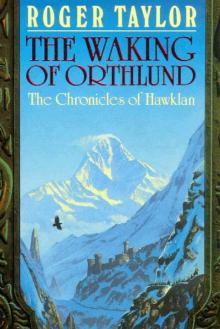 The waking of Orthlund tcoh-3
The waking of Orthlund tcoh-3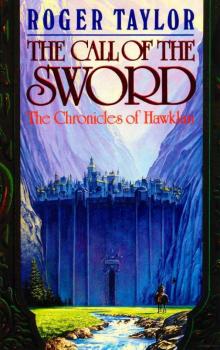 The Call of the Sword
The Call of the Sword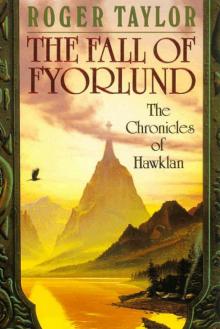 The fall of Fyorlund tcoh-2
The fall of Fyorlund tcoh-2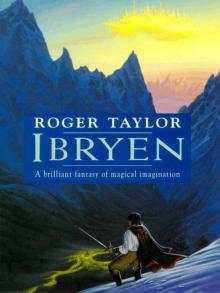 Ibryen
Ibryen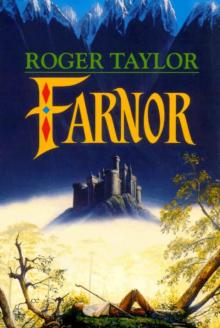 Farnor ft-1
Farnor ft-1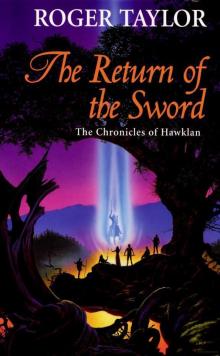 The Return of the Sword
The Return of the Sword![Into Narsindal [Book Four of The Chronicles of Hawklan] Read online](http://i1.bookreadfree.com/i2/04/06/into_narsindal_book_four_of_the_chronicles_of_hawklan_preview.jpg) Into Narsindal [Book Four of The Chronicles of Hawklan]
Into Narsindal [Book Four of The Chronicles of Hawklan]![Valderen [The Second Part of Farnor's Tale] Read online](http://i1.bookreadfree.com/i2/04/05/valderen_the_second_part_of_farnors_tale_preview.jpg) Valderen [The Second Part of Farnor's Tale]
Valderen [The Second Part of Farnor's Tale]![The Fall of Fyorlund [Book Two of The Chronicles of Hawklan] Read online](http://i1.bookreadfree.com/i2/04/08/the_fall_of_fyorlund_book_two_of_the_chronicles_of_hawklan_preview.jpg) The Fall of Fyorlund [Book Two of The Chronicles of Hawklan]
The Fall of Fyorlund [Book Two of The Chronicles of Hawklan]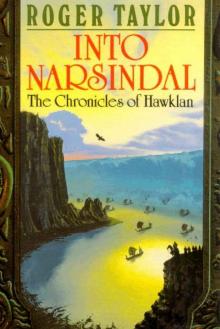 Into Narsindal tcoh-4
Into Narsindal tcoh-4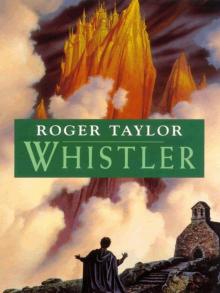 Whistler
Whistler![Whistler [A sequel to The Chronicles of Hawklan] Read online](http://i1.bookreadfree.com/i2/04/12/whistler_a_sequel_to_the_chronicles_of_hawklan_preview.jpg) Whistler [A sequel to The Chronicles of Hawklan]
Whistler [A sequel to The Chronicles of Hawklan]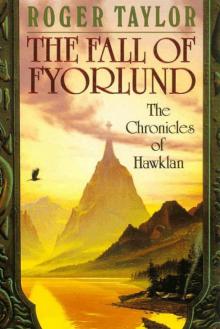 The Fall of Fyorlund
The Fall of Fyorlund![The Waking of Orthlund [Book Three of The Chronicles of Hawklan] Read online](http://i1.bookreadfree.com/i2/04/11/the_waking_of_orthlund_book_three_of_the_chronicles_of_hawklan_preview.jpg) The Waking of Orthlund [Book Three of The Chronicles of Hawklan]
The Waking of Orthlund [Book Three of The Chronicles of Hawklan]